Thai Study Group 2nd Seminar May 19th “Current Situation of Mae Kok and Hill Tribes”
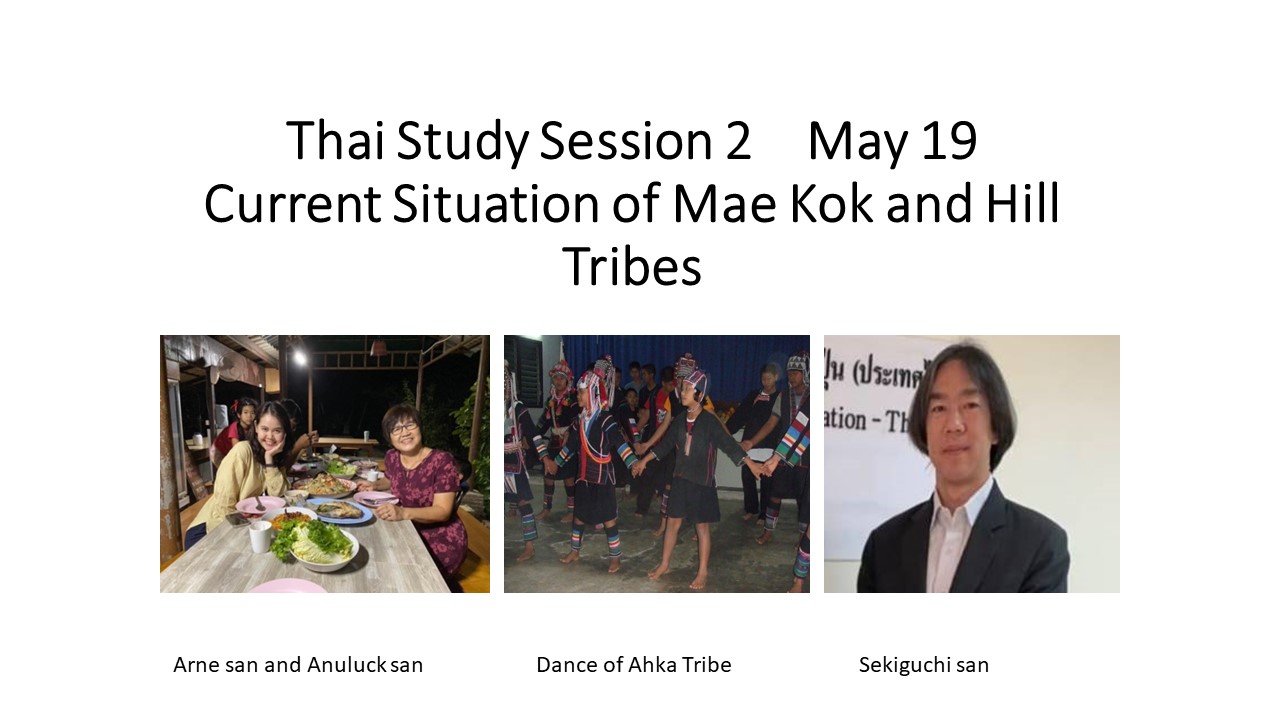
This report was edited by Takizawa, Okumura, and Shimabayashi.
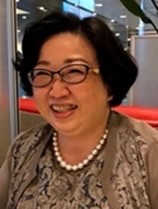
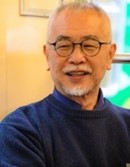

The first seminar was held on March 9th, and Mr. Sekiguchi gave a lecture online on “The Current Situation of Bangkok’s Slums”. Anuluck san, Arne san and Sekiguchi san gave us a lecture as the second seminar on “The Current Situation of Mae Kok and Hill Tribes ” on May 19, On the day of the event, 20 people, including the instructors, participated online and it was a very interesting study session. We would like to report you how the 2nd seminar went.
1) Introduction of MKF from Ms. Anuluck.
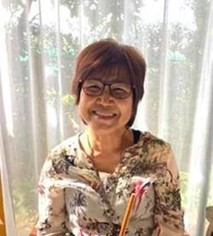
MKF began when Anuluck’s husband, Dr. Pipat Chaislin, was aiming for regional development through tourism.
Dr. Pipat was introduced as a “mountain teacher” in the book “Reporting Invisible Asia” written by the Mainichi Shimbun reporter. Dr. Pipat was also the principal of an elementary school, but he started a small travel agency P Travel Service to bring tourists to the village. He tried to connect it to the development of the village and his business was devoted to supporting the hill tribes by donating some parts of the profits.
While introducing the village, Dr. Pipat became acquainted with Dr. Shigeru Takehara of Reitaku University (who was later naturalized in Japan after the Laotians), and then every August, Dr. Takehara brought students from Reitaku University to MKF. He came to visit and got acquainted with Professor Jiro Tobe (later the principal of Seigakuin Junior and Senior High School), and the students of Seigakuin visited every Christmas season before becoming a Pandemic of Coronavirus. It’s been 32 years.
The MKF Project started as a drug addiction rehabilitation facility and has been donated and supported by various organizations for seven years. Japan’s Ministry of Posts and Telecommunications (later Ministry of Internal Affairs and Communications) International Volunteer Savings and the Japanese Embassy (Grant-in-Aid for Grassroots) donated a Mazda car.
After that, the purpose of the facility shifted to education for children. At first, it started by taking care of the children of the families who had come to rehabilitation for drug addiction.
With the cooperation of various people, the MKF was established on March 19, 2003 to support the educational life of children. They took care of the dormitory divided into boys and girls, sent them to school, and took care of meals. Currently there are 20 children, 7 boys and 13 girls aged 6 to 17 years. We have 1 kindergarten, 10 elementary school students, 4 junior high school students, 4 high school students, and 1 vocational school student.
This year, the number of children was small, and two third graders had only two days after moving into the dormitory before returning to a village house not far from MKF. The girl has her father imprisoned for drug addiction and the boy’s parents are divorced. We couldn’t accept new children because of the rule that they had to stay here at least two weeks before the start of the new semester. There are only two new students this year (a girl in the second grade of high school and a girl in the first grade of elementary school. They are Hmong tribe). During the pandemic period, there were many online lessons, and they couldn’t take the school lessons satisfactorily, but this year the situation in the coronavirus improved and they got the vaccine twice, so it started as usual on May 17th.
In addition to learning, MKF activities give children their own role so that they can take responsibility for themselves in their lives. We clean the outside of the dormitory, prepare meals, wash dishes, and live together while helping each other.
From Monday to Thursday, they study the Bible in small children group and senior students group. There is a Japanese language class by Professor Tobe at 19:30 on Saturday night and 8 am on Sunday morning. There is a worship service from 9:30 to 11:30 on Sundays.
The MKF’s finances have deteriorated due to the pandemic. This is because there are no more guests staying at MKF’s facilities. However, with the support of OCA, MRA House, Reitaku University, university students of the attached high school, fundraising by high school students, fundraising activities of Tokyo Women’s Christian University, Seigakuin Junior and Senior High School, etc., they supported MKF’s activities.
Please come to MKF when Coronavirus is over or calm down. Thank you for your time today.
Facility Information
Pastor Juk showed us around MKF’s farm. First of all, he showed us the catfish that they keep in the fishpond (there are many delicious catfish dishes in Thailand). After that, the children were stripping the lychee from the tree where the lychee was fluffy. The lychee trees were tall, and the children ate the lychee on the roof of the school bus (with a ladder) which they use it for going to school. One of the children showed us a fresh fruit, “Sweet and delicious!” The durian trees grown on MKF are still a little over a year old and will bear fruit in three years. These durians will be for sale. According to Anuluck, “Dorian has a lot of initial investment (laughs)” I can’t wait to see the fruits. Papaya trees, mango trees, rambutan trees, banana trees, have splendid fruits.
After seeing the fruits of the farm, we moved to Anuluck’s kitchen. In the kitchen, the pineapple jam inside Anuluck’s pineapple pie was boiled down. She was making mango jelly. It had a lot of mango pulp and coconut milk on top. (Photo). They look delicious!
Finally, we were shown the cooled and completed mango jelly and the baked pineapple pie which looked delicious! “There is an order from a customer in Chiang Mai and it will be delivered tomorrow.” (Report by Takizawa)
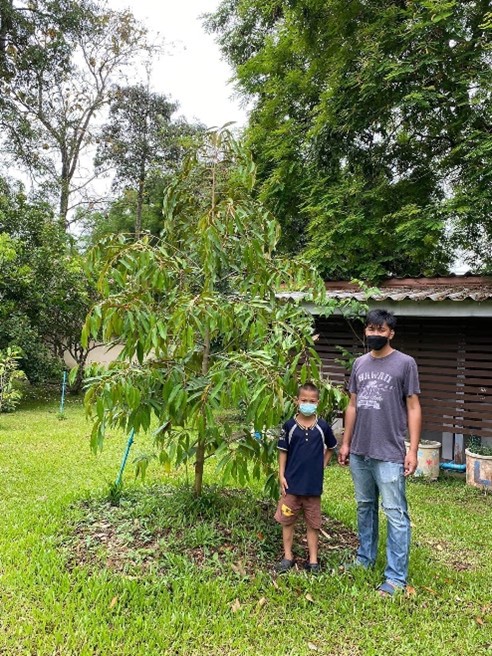
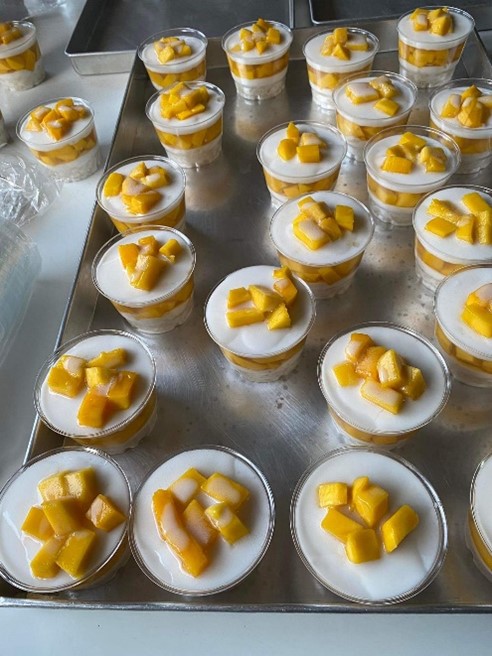
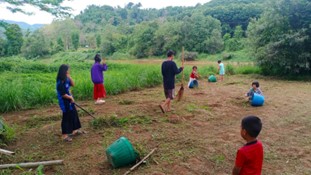

2) The Story of Arne’s Ahka Tribe
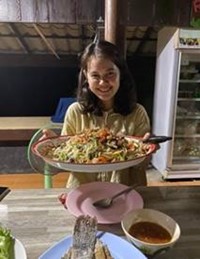
I grew up in MKF from 6 to 15 years old. My father died and I came to MKF. I heard that there are about 20 people now, but at that time there were about 40 children and they lived together.
At MKF, we valued self-sufficiency education, so we all work in agriculture and cooking at the same time we go to school. There were times when I found it difficult, but when I think about it now, the work has greatly fostered independence.
I was greatly influenced by Dr. Pipat, the founder of MKF. He was like a father. Dr. Pipat said, “Education helps in difficult situations,” and I learned a lot about the importance of education, the importance of studying, and efforts to foster independence.
I was very interested in Japanese and studied in contact with people from Japan who visited MKF. I was lonely and painful at MKF because I couldn’t meet my parents, but I was most looking forward to spending time with students from Japan every Christmas time. The memories of cooking, farming together, and playing were the most memorable, and I enjoyed them very much. As a result, I studied Japanese in earnest. I studied Japanese and advanced to study abroad at Sophia University. However, the classmates who gathered because the department was a foreign language department were all foreigners who came to Japan to study Japanese, but I ended up learning English. (smile)
I love yakiniku in Japanese food. I was not good at beef in Thailand because it smelled bad, but when I first ate yakiniku in Japan, I found that beef was so delicious.
I love the works of Japanese anime, Studio Ghibli. In Thailand, I have been studying Japanese by watching Ghibli anime. The world of Ghibli depicts the ancient scenery, culture and people of Japan, so when I came to Japan for study abroad, I was very surprised that there was no such scenery in Tokyo and all the buildings were big.
I am from the Akha tribe of the mountain minority, and the minority mountain tribes are in a situation where they are low in status and cannot easily obtain Thai nationality and receive satisfactory education. At school there were only one or two teachers for every hundred children, and one teacher taught several subjects. I believe that the importance of education will change our status and environment. It is very unfortunate to know nothing nor being unable to get education. The government says that everyone is equally educated, and their status is guaranteed, but the reality is not.
The village of the Ahka tribe where I was born is now a village of about 40 households, and in the old days, everyone was poor and used to grow pineapples on thatched roofs and live in agriculture. Young people leave all villages and go to work in the city center or abroad, and the villagers are only old people. There are several people who work in South Korea (one in Japan), and they use the money they earn to build new homes and live their lives. There are companies that arrange migrant workers, but there are many cases where they are deceived, and when they go, they are often forced to do unpleasant jobs that are completely different from the story. From that point of view, it is very important to acquire education. Work in the city center of Thailand often ends up in 3k (hard, dangerous, and dirty).
The big issue is how to preserve the culture and religion of our people. If you go as it is, it will be assimilated into Thailand and the existence of the Akha people will disappear. Other ethnic groups are in the same situation. However, I think that it is unavoidable to think about making our lives better than they are now. The Ahka tribe has about five big festivals in a year. One of the big festivals is when new rice is caught. We will have a festival wearing folk costumes while eating it together.
My dream for the future is to make effective use of Japanese and continue to work as a bridge between Thailand and Japan. Please come to Thailand and MKF. We look forward to meeting you. (Report by Okumura)
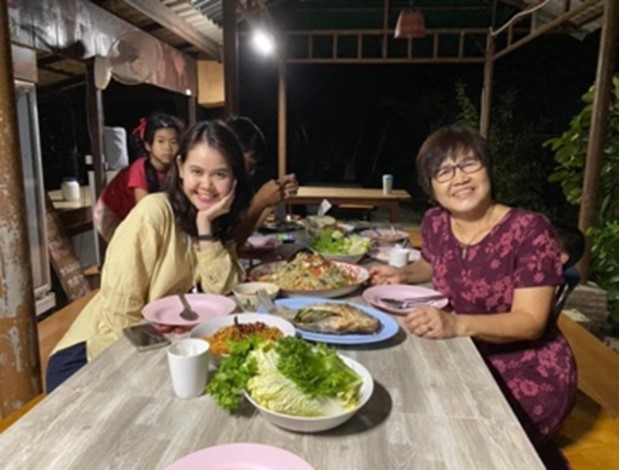
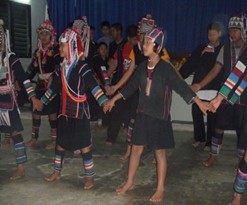
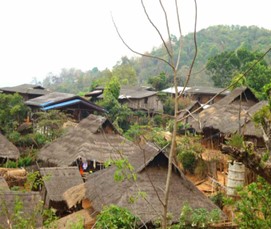
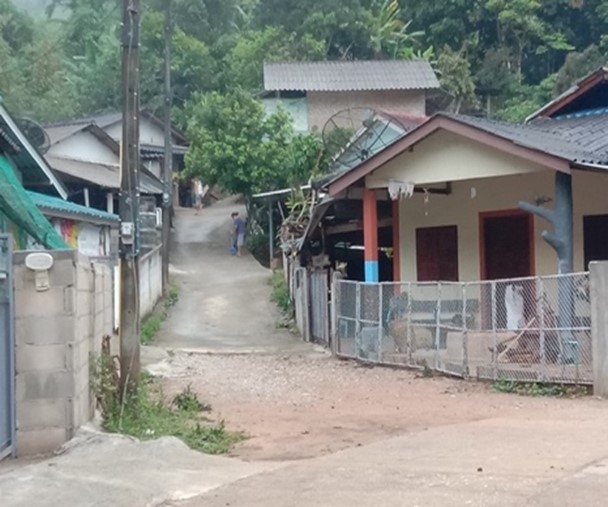
3) Mr. Sekiguchi and the Hill Tribes

I graduated from Reitaku University in 1997 and worked as a volunteer at MKF for seven and a half years. After that, I came to Bangkok and have been working as a director at the Bangkok office of the International Labor Foundation since 2010. My main work is labor issues in Southeast Asia and improving the livelihoods of Bangkok slum dwellers. I have also helped students from the University of Tokyo and Juntendo University on a study tour of Bangkok Slums.
When I was working at MKF, Dr. Pipat, who founded MKF, was still alive and working on solving various problems faced by Professor Takehara of Reitaku University, Professor Tobe of Seigakuin about the hill tribes. The big problem for the hill tribes at that time was how to rehabilitate the drug addicts who were prevalent in the hill tribes. MKF started as a rehabilitation facility for hill tribes. After that, the Thai government embarked on a full-scale rehabilitation program and developed as an orphanage to take care of children with drug addiction.
At that time, Arne also lived in MKF. There are many hill tribe education support groups in northern Thailand, but unlike other education support groups, MKF’s education policy is that all necessary things for life are done together with children. They do farm work, grow fish, prepare their own meals, and clean the premises. It is MKF’s educational policy to teach all the work necessary to live so that they will not be in trouble even after graduating from MKF.
In Thailand, a study (Credit Suisse, 2018) that 1% of the wealthy people own more than 60% of the country’s wealth is famous, but it is mountainous in the Thai hierarchy where the difference between rich and poor is wide. The hill tribes are further below the northeastern farmers at the bottom of the hierarchy. Even though being born in Thailand, it may be difficult to obtain Thai nationality. The Thai government says that it is promoting equalization of education, but, children of hill tribes are not given sufficient educational opportunities, and even if they graduate, there are restrictions such as not given the employment opportunities at public institutions and educational sites.
To eliminate discrimination against hill tribes, I think that it will not change unless a person like Arne comes out and acts as a model for the people and realizes the importance of education. (Report by Takahashi)
4) Reactions of Japanese Students
We would like to introduce the comments of Japanese students who participated in the 2nd seminar as follows. (Report by Shimabayashi)
I had a very valuable time.
Although it was online, I was able to feel closer to life in northern Thailand, and it was also an opportunity to think about the problems that hill tribes are experiencing.
(Keio University: Ayumu)
It was very interesting to hear stories that we couldn’t get from the information we could look up. I was very interested in all the themes, but I was very interested in Arne’s story because I was able to learn about the problems and actual conditions of Thai society. I regret not being able to ask a question with a little hesitation.
Also, I was very interested in the MKF supper that came out towards the end!
I think that this study session will make the time to interact with Thai students more meaningful, so I would like to continue to actively participate in this study session. (Saitama University: Shinya)
Until now, I only talked with Thai students in ZOOM, so I didn’t really get the image of going to Thailand in the fall, but I was able to see the local situation and my feelings for visiting Thailand increased.
Also, since there is a limit to the actual situation of the problems that Thailand has, which we do not know the local situation on the net etc., there is a reality because we were able to actually hear the story of the local people, and the problem I felt the seriousness of.
I was impressed by the fact that the disparity in Thailand still retains the old customs and that it is difficult to improve institutionally.
(Chuo University: Miyu)
